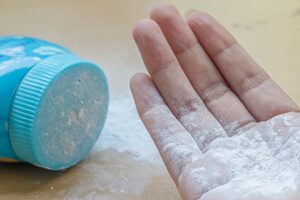On February 4, for the first time in almost fifty years, the FDA held a hearing examining the standards used for testing talc-containing products for asbestos and other potentially harmful contaminants. In response to recent reports that asbestos had been found in several talc-containing products, including a bottle of Johnson & Johnson’s Baby Powder, the FDA reviewed standards that had been recently propounded by a panel of government experts. This panel reviewed positions taken by public health authorities in the past as well as arguments put forth by plaintiffs in lawsuits alleging they developed cancer as a result of exposure to asbestos-contaminated talc products. The agency heard from consumer advocates, industry representatives and testing experts.
In a written report, the panel observed that the testing methods used by the talc industry had “long-observed shortcomings in specificity and sensitivity” and made a number of recommendations, including one that minerals other than asbestos that were small enough to be breathed into the lungs should also be considered potentially harmful since they could result in “similar pathological outcomes”. The Personal Care Products Council, an industry trade group of about 600 companies, has voiced opposition to this interpretation, arguing that including other mineral particles as possible carcinogens is not supported by science.
The cosmetic talc industry has been permitted to police itself for decades with almost no oversight from the FDA; as a result, manufacturers had never been required to test their talc products for asbestos. A report published in December by Reuters showed that since the 1970s the FDA had minimized any potential health concerns that may have been caused by the presence of asbestos in talc powder products, including cosmetics, and deferred repeatedly to manufacturers. At the recent public hearing, consumer advocates and government experts argued that this era of self-regulation needed to end, that warning labels should be added to talc products, and that more stringent testing methodologies must be adopted.
Click on this link for information on Verus’ Mass Tort Services. To contact us, fill out this form or email us at info@verusllc.com and we will reply immediately.







